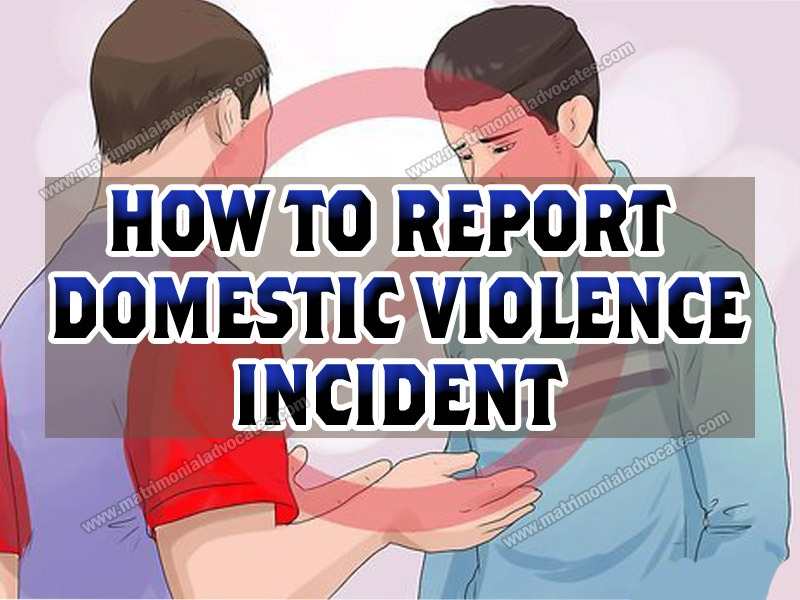
“The manifestations of violence against women are a reflection of the structural and institutional inequality that is a reality for most women in India.” Rashida Manjoo
Whenever we discuss domestic violence the first question arises that what is domestic violence? Answering that:
Any harm, injury, to health, safety, limb, or well being or nay other act or threatening, coercion etc. by any adult member of the family constitutes domestic violence.
Everyone has heard of someone amongst their families, friends or acquaintances who have suffered some form of domestic violence, i.e. some form of verbal, physical, sexual or economic abuse. We understand “domestic violence” here as it is defined under the Protection of Women against Domestic Violence Act, 2005 (‘DV Act’).
There are also plenty of statistics substantiating these unfortunate realities.
After a long wait, it is in 2019 that the National Crime Record Bureau of India has published its report pertaining to crimes in India 2017. According to this report:
- 10,45,51 cases have been filed under Section 498A IPC, a criminal law dealing with `cruelty’ against married women by their husbands and in-laws;
- 7,466 cases have been registered under Section 304B, criminal law pertaining to dowry deaths;
- 10,189 cases have been registered under Dowry Prohibition Act a law that bans giving and taking dowry;
- 5,282 cases have been registered for abetment of suicide among women, and
- 616 cases have registered under the Protection of Women against Domestic Violence Act which provided for civil remedies to the victims of domestic violence. Men who violate the orders of the court are being booked under the criminal law.
These statistics go on to show how widely prevalent domestic violence is and how grave and urgent an issue it is, requiring our collective attention as a society.
During the COVID lockdown reports of domestic violence have increased. It’s clear that when women are ‘locked down’ in their homes with abusive partners, they are at much greater risk than ever before. But this upsurge in violence is not limited to women and definitely not limited to one country or one region. Media reports are documenting an increase in violence across the globe. The Indian government has recognized this concern and the National Commission for Women have launched a Whatsapp helpline. This also shows the gravity and prevalence of the issue at hand. It is clear that addressing domestic violence has become an urgent issue not only for the government, as it is a public health crisis and a criminal act.
Frequently, domestic violence is trivialized and normalized and is being dismissed as minor altercations or trivial disputes by the society, police and courts while disbelieving women as victims and survivors of violence. This work reflects that there is a need for greater introspection to ‘make homes safe’ for women.
While the law can provide the ropes for victims to hold on to, it is only through a change in societal attitudes that victims can be empowered to reach out for those ropes, to hold on to them and to find their way out. But as legislation are commencing novel amended laws for protection of women and trying to make their matrimonial house a safer place for them still there is preponderance of women who are not aware of how to report such domestic incidents. This article is to help Indian women to know about certain ways of reporting a domestic violence crime.
HOW DOMESTIC VIOLENCE COMPLAINTS ARE TO BE REPORTED?
Domestic violence cases are relatively high in India, and the mostly women who are subject matter of violence are either belongs from a bigot, jingoistic families or poor families or they are illiterate. Hence, victim of domestic violence must have access to the courts or help line numbers at all times.
Many victims of domestic violence are not even aware of that they are actually living in abusive relationship because of the forced habit burdened upon them by the patriarchal society and lack of knowledge.
Any women who found herself in such situation and clearly categorized that she is been victim of domestic violence should instantly do the things as under:
- Foremost call on Legal aid helpline numbers like 100, 1091,1291 and 011-23317004.
- Victim can go to nearest police station and asked them to file an FIR. If, the police tell you the incident does not fall under their jurisdiction, then ask them to register a Zero-FIR. Zero-FIR means an FIR can be filed in any police station (irrespective of place of incident/jurisdiction) and later, the same can be transferred to the appropriate police station.
- Victims can also report domestic violence incident through online FIR. Otherwise, you can simply file your complaint by visiting the National Commission for Women website.
- During pandemic situation many victims can also contact NCW through their WhatsApp number -7217735372.
- Victims can also approach Protection officers who are initially present in each district and they will assist you and reduce such information into writing.
Complaint Filed to Police
As a woman, if you have reason to believe an act of domestic violence has been, or is being, or is likely to be committed, you can go to your nearest police station to file an F.I.R, known as First Information Report.
Remember, the police on duty can’t refuse your complaint and are bound to register it.
If, the police tell you the incident does not fall under their jurisdiction, then ask them to register a Zero-FIR. Zero-FIR means an FIR can be filed in any police station (irrespective of place of incident/jurisdiction) and later, the same can be transferred to the appropriate police station.
The police will note down the incident while filing the FIR and ask you to sign it. Please doubled check the information they have written and make sure there is a less chance of discrepancy.
If you feel uncomfortable talking about the problems you have to a male policeman, you can also request the police for female officers to assist you.
Other than a police officer, you can also seek help from a protection officer, service provider or Magistrate regarding your problem.
Online FIR
You can file an online FIR if your state has the facility to do it. Otherwise, you can simply file your complaint by visiting the National Commission for Women website.
The receipt number will help you to obtain your file number, user id and password within 10 days of filing of complaint when required.
Approaching Protection Officer
Where any aggrieved person approaches court or upon receiving information from any person who witnessed such violence or aggrieved herself, a PO will assist such person and PO’s primary objects will be:
To reduce such information into writing and ensures same to be signed by such person and he will provide that person the copy of information free of cost;
To minimize the aggrieved person’s exposure to such violence;
To facilitate her access to support services such as shelter homes and medical facilities; and
To assist with the preparation of the Domestic Incident Report (DIR) and applications to Court.
Law enforcement, Municipal and Superior Court staff must be advised that victims should never be turned away because of the inconvenience of arranging off-hours emergency relief. A law enforcement officer responding to a domestic violence call must provide the victim with necessary assistance to file either a criminal or civil Complaint. Under no circumstances should an officer prevent or discourage a victim from seeking immediate temporary relief merely because the domestic violence occurs after regular business hours.
WHERE TO FILE A CRIMINAL COMPLAINT WITH AN ACCOMPANYING TRO APPLICATION AND COMPLAINT
When a victim is seeking a Temporary Restraining Order (TRO), a companion criminal complaint may also be signed against the defendant in one of the following locations:
- where the alleged act of domestic violence occurred, or
- where the defendant resides, or
- where the victim resides, or
- where the victim is sheltered or temporarily staying.
The out-of-jurisdiction complaint (i.e., one taken not where the incident occurred) should be prepared on a blank CDR(call detail record)and the court accepting the complaint for filing shall have the authority to issue process and set bail as if the alleged offense had occurred in that jurisdiction. A “blank” CDR is one without the court’s name or municipality code in the caption. The companion criminal complaint shall be forwarded to the jurisdiction where the offense is alleged to have occurred for investigation and prosecution. A criminal complaint does not preclude the victim from filing a domestic violence complaint and seeking a TRO. A person may also file criminal charges without seeking a TRO.
WHERE TO FILE A CRIMINAL COMPLAINT WHEN THERE IS NO ACCOMPANYING COMPLAINT TRO
- The victim may file a criminal complaint with the Municipal Court or police department where the alleged act occurred.
- If the police officer believes that no-contact provisions should be issued as a condition of bail, the officer should inform the court of the circumstances justifying such request when the criminal complaint is being processed and bail is about to be set. This section shall be checked off on the appropriate form. The officer should include in the domestic violence offense report the reasons for the request and the court’s disposition of the request.
CONCLUSION:
The PWDVA provides for more effective protection of the rights of women guaranteed under the Constitution who are victims of violence of any kind occurring within the family. The act is not gender neutral as it is completely beneficial to women only. According to the act any harm, injury, to health, safety, limb, or well being or nay other act or threatening, coercion etc. by any adult member of the family constitutes domestic violence. Aggrieved women can complain to the concerned Protection Officer, police officer, service provider or magistrate. Aggrieved person has right to be informed about the available services and free legal aid services from the protection officer.
This act covers those women who are or have been in a relationship at a point of time both parties lived together in a shared household and are related by consanguinity, marriage or thorough a relationship in the nature of marriage or adoption. In addition, the relationship with family member living together as joint family is also included. Even those women who are sisters, widows, mothers, single women, or living with the abuse are entitled to legal protection.
As we have discussed above there are plentiful ways where women can contact or approach to the concerned authorities if they are subject to domestic violence. Even many NGO with collaboration to NCW organized small general awareness camps to small villages where women are subject to domestic violence and are not sentient who to approach and how. These camps provide these women counseling and assist them to approach concerned authorities to report such atrocious crime.





